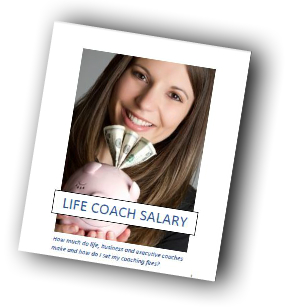
It's almost impossible to the miss the story about the two 'life coaches' in Brooklyn who committed suicide this week. That story is everywhere, because it's so ironic. The two actually co-hosted a radio show called, The Pursuit of Happiness!
Apparently, they failed to find it.
This post isn't about them. They clearly were in a lot of pain and their passing is tragic.
This post is rather about the subtext of the media frenzy (okay, it's a small frenzy; let's just call it media attention) surrounding this story.
The subtext asks...
- How could these life coaches help anyone find happiness, when they were clearly miserable, themselves?
- Were these life coaches hypocrites?
- Would you want a life coach who is suicidal?
- Aren't there any requirements to calling yourself a life coach?
- How can you trust anyone who calls him/herself a life coach, when they might be depressed, mentally ill, suicidal, or who knows what?
In answer to number 4: No. There are no legal requirements to calling yourself a life coach. Yet.
That means my dog could be a life coach. She may be more qualified than some human life coaches.
And I'm not just singling out life coaches. Business coaches, executive coaches, career coaches, health coaches. None of these titles means anything. In today's world, everyone, including bill collectors, can and do call themselves coaches.
The guy selling vitamins at the health-food store is a nutrition coach. The woman who works at the dress shop is a retail coach. The manager at a telemarketing company is a sales coach.
None of these phrases means anything, because they have come to mean whatever anyone wants.
Right now, there is maximum freedom in the coaching industry, because there are no real legal requirements. That allows massive creativity and growth and that's great for coaches and can be great for clients, too. Although the situation appears to be changing and the suicide story may speed up that change.
The real problem these days is for the consumer who doesn't know whom to trust.
The answer, of course, is credentialing and industry oversight, but a lot of 'coaches' are fighting it.
- They say it's an evil plot by established coaches to keep out the competition
- They say a piece of paper won't help them coach any better
- They say it's an effort to control coaches, or to sell them training and certifications
Really?
That first argument is just paranoid. The second is true. Although, I've seen hundreds of coaches learn to coach much better, while on the way to qualifying for a piece of paper. And the last may, or may not be true, but it's not a good enough reason to not get certified.
Life coaches get certified because they want to be the best they can be. Because they are committed to their profession. Because they feel it is the right thing to do. Because they are proud to be certified. They also get certified to distinguish themselves from the worst of the worst.
Consumers look for assurances that they can trust the life coaches they hire. And they deserve some assurance. That assurance often takes the form of a certification.
I got my first coach certification a decade ago and have qualified for several more, since. I've learned something new with each one. I'm not finished.
Although I believe more in learning than I do in credentials, I've noticed that the goal of credentialing is an effective way to stay focused on learning. It has worked for me and for thousands of other good coaches.
I sell training and certifications to coaches mostly because I want to help good coaches distinguish themselves from ineffective or dishonest coaches. It's an honor to work with people who are committed to being their best. Whether you get certified by my organization or some other, get certified.
Certified Life Coach means something. IAPPC, IAC or ICF Certified Life Coach really means something.
It's time to stop calling yourself just a life coach.
If you want to explore the path to coach certification, click below:












 If you're a relatively new business or
If you're a relatively new business or 








 Guest blog post by
Guest blog post by 

